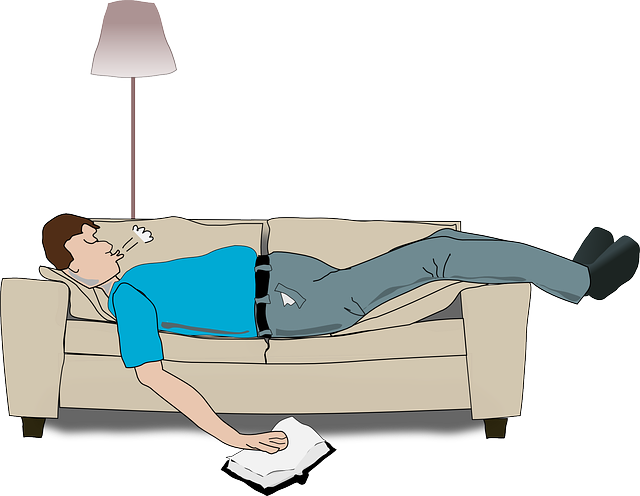WHAT IS SLEEP APNEA?
Sleep apnea is when you stop breathing in the middle of the night. For a brief moment, like a hiccup in your breathing, you’re not getting any air.
A lot of people struggle with sleep apnea especially if they are overweight. What happens is your nasal area, or throat, constricts, and causes difficulty in breathing.
With these breathing hiccups, a disruption is caused during sleep. Those who suffer from sleep apnea often complain they are always tired and they can never get a good night’s sleep. That is why.
Their breathing hiccup keeps waking them up.
Studies have shown that sleep apnea can be caused by an excess of fat at the back of the throat that causes it to close off.
When you lose weight, that restriction is lifted and the breathing hiccup is no longer an issue. But that’s controversial. Some people say that it’s all about the nose, or whether or not you close your mouth when you sleep.
I think there’s a lot about our health that we just don’t know for sure.
For this particular article, I just want to focus on the aspect of fat formation in the back of the throat as being a cause for sleep apnea.
If we can deal with that, perhaps we can find a solution that will work long-term for the majority who suffer.
HOW CAN FASTING HELP?
Fasting can help sleep apnea sufferers in many ways. Firstly, the number one thing doctors recommend for those who suffer from sleep apnea is to lose weight.
When we lose weight, fat formations become less. If there is a fat formation behind the throat, I can see how intermittent fasting will eliminate that.
When you start an intermittent fasting program you kickstart your body to produce ketones. Ketones are chemicals that form in our blood when carbohydrates are low. That can happen when we fast.
Our bodies begin to switch over to what we call ketosis, where fat is burned for fuel instead of sugar. What we want to do is we want our body to burn our own fat storage. That’s how we lose weight.
Our bodies can hang on to quite a lot of fat storage. I like to say it’s my rainy-day fund. Just in case one day we are starving, we might need that rainy day fund to live off of.
The premise behind intermittent fasting helping with sleep apnea, is to create that (fat burning) scenario. We want to make the brain think we are starving for short periods of time so it gets fooled into eating its own fat supply.
When that happens, we lose weight. And when we lose weight with sleep apnea, the effects of this disorder become a whole lot less.
WHO WILL BENEFIT?
Anyone who has sleep apnea will benefit from a good intermittent fasting regime. The weight loss achieved through intermittent fasting will help reduce the symptoms of sleep apnea.
This topic is close to my heart because my husband suffers from sleep apnea. He also does fasting with me, and I can see benefits. His sleep apnea is not as it used to be because he lost weight by doing intermittent fasting.
He used to have to wear a sleep apnea machine all the time, but now he rarely does . If he can continue losing more weight, I have no doubt that his sleep apnea symptoms will go away completely.
It’s just a matter of time.
HOW CAN IT IMPROVE SLEEP?
Because fat is said to be stored behind the throat, obese people suffer the most with sleep apnea.
As soon as weight loss is achieved, we get a better sleep. That’s because that pocket of fat that is causing the problem and creating that breathing hiccup, prevents a good night’s sleep.
Who wants to repeatedly be woken up throughout the night? If weight loss can be achieved by doing intermittent fasting, and sleep apnea can be cured or lessened with weight loss, why not do it?
BENEFITS OF FASTING
The benefits of fasting are huge. They are the same benefits that intermittent fasters experience or any ketogenic dieter. As long as the method by which you choose to achieve ketosis is long term, you will reap the rewards.
Those rewards come in the way of health. The benefits of ketosis will show up in your skin. It will reduce acne, eczema, and many other skin ailments.
I used to suffer from terrible eyelid eczema, but not anymore. Since achieving ketosis on a regular basis I have not had one doubt of eczema.
Ketosis also benefits the heart. It reduces heart disease, high blood pressure, normalizes blood sugar, and lowers cholesterol. It benefits those with diabetes and prevents it as well. It also prevents Alzheimer’s.
Ketosis benefits your cells as well. It promotes cell regeneration through autophagy and increases the human growth hormone. It acts as a fountain of youth, by restoring wrinkles and giving you a healthy glow.
There are so many benefits to achieving ketosis that it’s hard to mention them all. Every body is different and reacts differently when in ketosis, but generally speaking the majority experience the same health benefits according to Harvard studies. I’ll link the study below.
If you liked this article, please consider pinning it on Pinterest by clicking the picture below.

For further information, go to the Hungry Old Lady Youtube channel by clicking on the video at the end. I hope you enjoyed this article and consider living an intermittent fasting lifestyle.


